GLADIATOR: Ridley Scott’s “Larger Than Life” Epic Explained
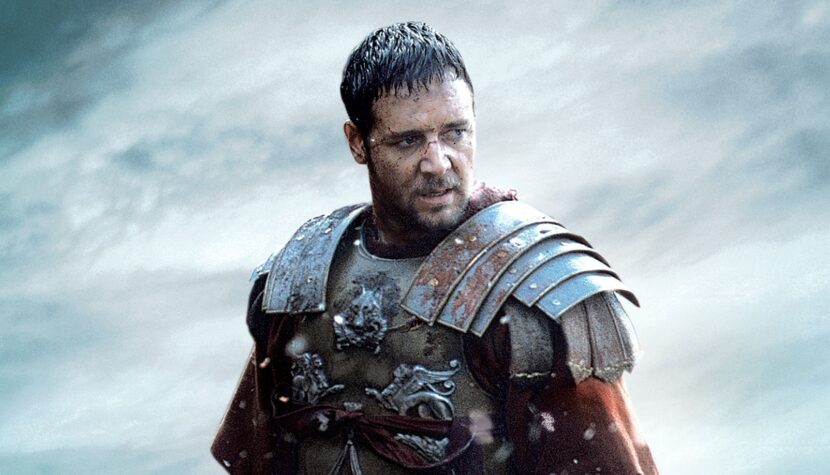
However, Ridley Scott’s film is a more canonical example of this genre as its action takes place in ancient Rome. Despite the different historical periods, these films are very similar. They tell stories of war, love, and revenge, using historical facts merely as a backdrop for the unfolding events.
History is an element of spectacle that can be freely used and shaped. However, compared to the director of Braveheart, Ridley Scott seems much more aware. In many scenes, he shows that there is no single, unalterable version of history, and that film, as an art form, uses history as one of the “materials” on which to experiment. As with all epics, Gladiator contains many historical inaccuracies, but in the case of this film, it is entirely intentional.
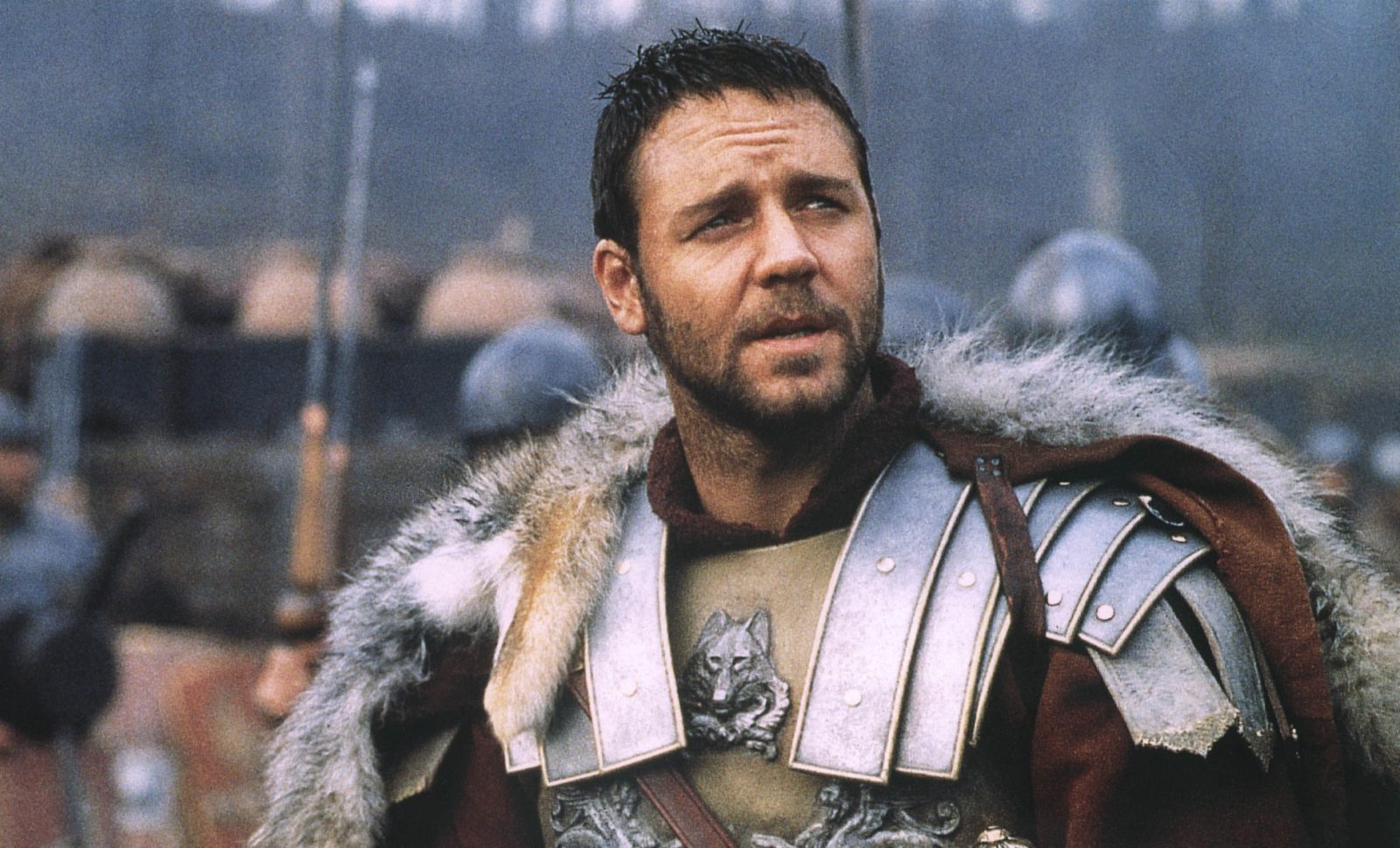
The film directly references The Fall of the Roman Empire (dir. Anthony Mann, USA 1964). We have the same historical period and a similar plot setup. General Maximus, after a victorious battle against the Germans, wants to retire, return to his family, and become a humble farmer. However, Marcus Aurelius has different plans for him. Appreciating his bravery, he wants Maximus to become the next emperor instead of his own son, Commodus. Marcus Aurelius wishes to restore the republic in Rome and believes that only Maximus, uncorrupted by politics, can achieve this. When Marcus Aurelius shares his plans with his son, the enraged Commodus kills him and declares himself the new Caesar. He orders the execution of Maximus and his family. The wounded general is captured and later sold to a gladiator trainer. From this point on, he must fight in the arena, seeking only one thing – to avenge the death of his loved ones.
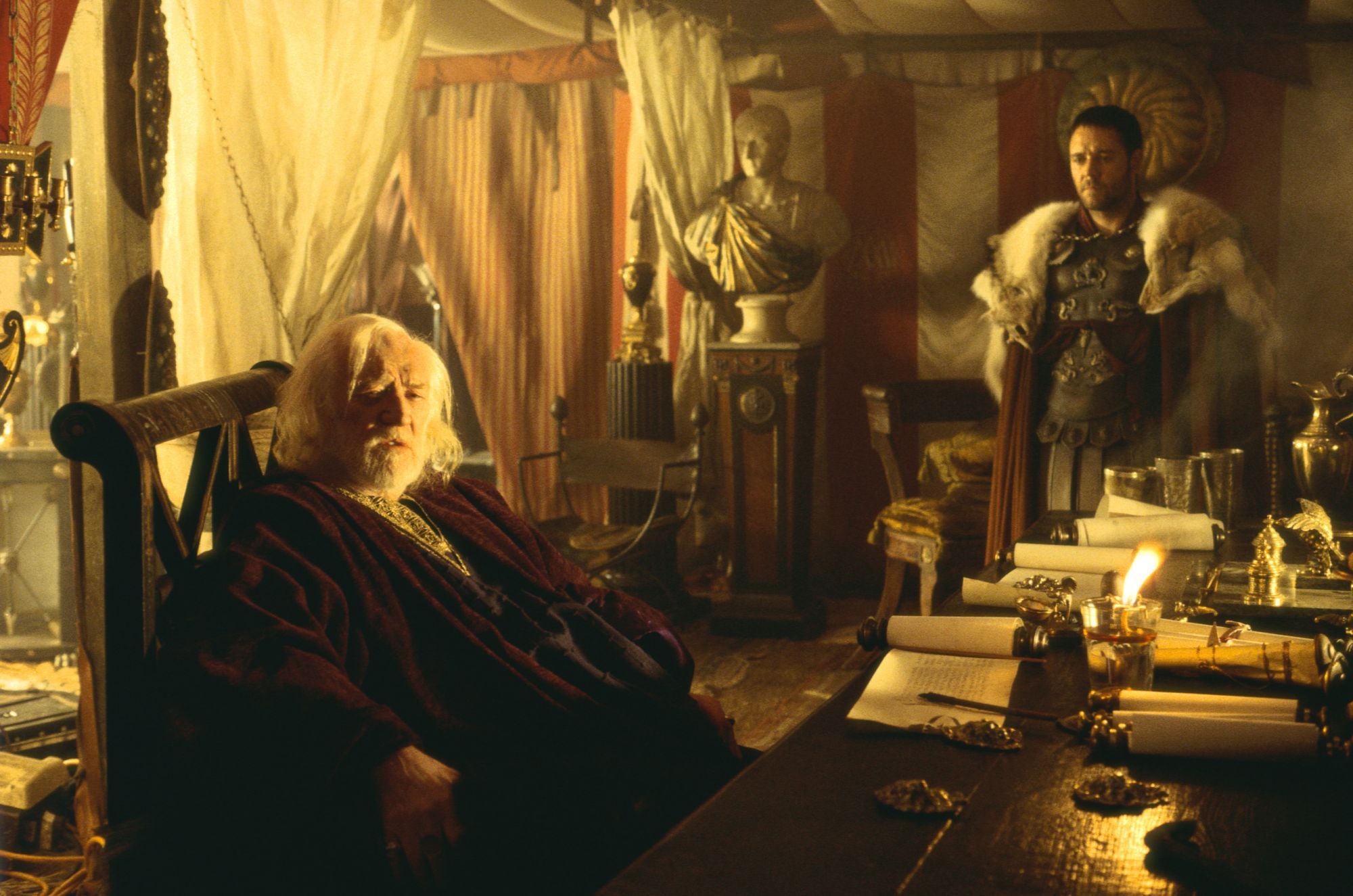
Historically, Marcus Aurelius did not die at the hands of his son and had no plans to deprive him of power. This dramatic decision might be apt in terms of storytelling, but why was it transferred almost identically from a film made forty years ago? Certainly not due to ignorance of the filmmakers. Scott demonstrates in his film that historical facts are subordinate to the cinematic narrative.
Gladiator not only directly references classic cinema but also the most stereotypical depictions of antiquity. In one scene, Commodus tells his nephew Lucius the story (now a legend) of Cleopatra, mentioning the well-known episode of her suicide, involving a snake biting her in the heart. Shortly after, when he wants to warn his sister Lucilla against conspiring against him, he uses the example of Claudius, betrayed by those closest to him. Rome is depicted primarily through its famous symbol: the Colosseum. Apart from palace scenes and brief moments in the senate, we don’t see many other places in this ancient capital.
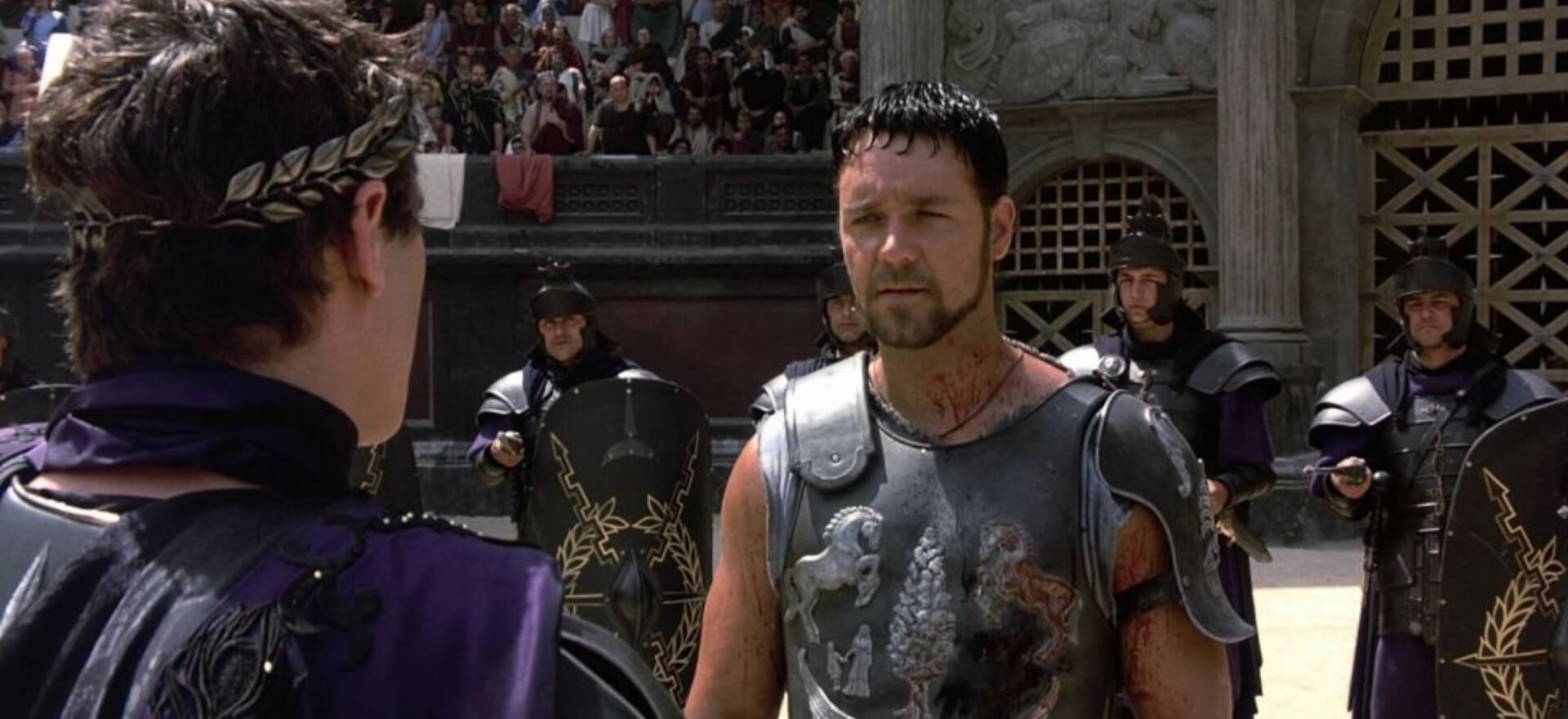
The subordinate role of history in the entire spectacle is evident from the fictional character of the protagonist, a simple soldier and farmer who, due to his virtues, is chosen by the philosopher-emperor Marcus Aurelius as his successor. Although Maximus does not ascend the throne, he saves Rome from collapse by killing Commodus during a fight in the Colosseum. Historical sources mention the young Caesar’s fondness for gladiatorial combats, but he did not die in the arena, let alone at the hands of one of his former generals. The best example of the filmmakers’ functional approach to facts is the brilliant scene of the re-enactment of the Second Battle of Carthage in the Colosseum. Maximus, along with other gladiators belonging to Proximo, plays the role of the barbarian horde commander Hannibal, who once clashed with the Romans. In reality, the barbarians lost this battle, but thanks to Maximus’s leadership skills, his team wins. Their lives depended on not adhering strictly to historical accuracy! This scene vividly illustrates that history can be shaped, that it is changeable over time and susceptible to manipulation. Ridley Scott’s film proves that if a movie is well-made, it can validate and justify any dramatic plot device. Truth is not important; the spectacle is. And this is partly what the film is about.
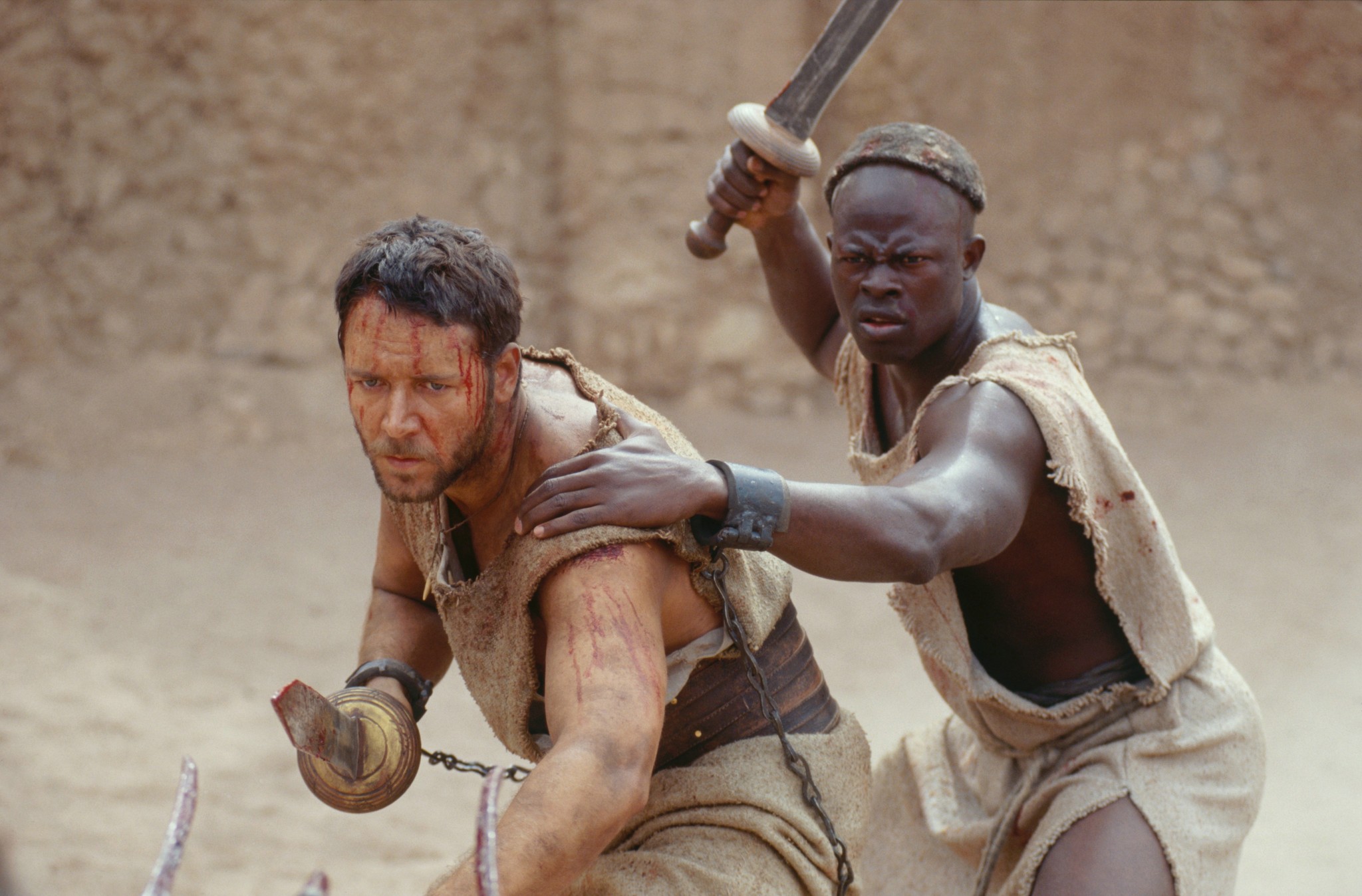
Gladiator, in its grand spectacle formula, is as classic as Braveheart. Maximus, like William Wallace, stands for values such as freedom, justice, and courage, driven by the desire for revenge for the death of his beloved leader and woman. Maximus is a monumental character without a single flaw. His enemy, on the other hand, is the opposite of the brave leader. Not only is he physically inferior, but he also has a harelip (reminiscent of socialist realist depictions of enemies of the regime!). We don’t even have to guess his character traits; the filmmakers state them outright. In a conversation with his father, Commodus delivers this speech: You sent me a letter once, listing four virtues: wisdom, justice, fortitude, and temperance. I knew I had none of these virtues. But I have other virtues. Among these, he lists ambition, resourcefulness, courage (not on the battlefield, for there are many kinds of courage), and devotion to family. Ambition and resourcefulness might be positive traits, but in Commodus’s case, ambition is almost pathological, and resourcefulness manifests as murdering anyone who opposes his rule. His devotion to family involves patricide and incestuous desires towards his own sister. When asked why Commodus cannot be the next emperor, Marcus Aurelius responds: He has no moral virtues. Maximus, on the other hand, embodies the first set of virtues.
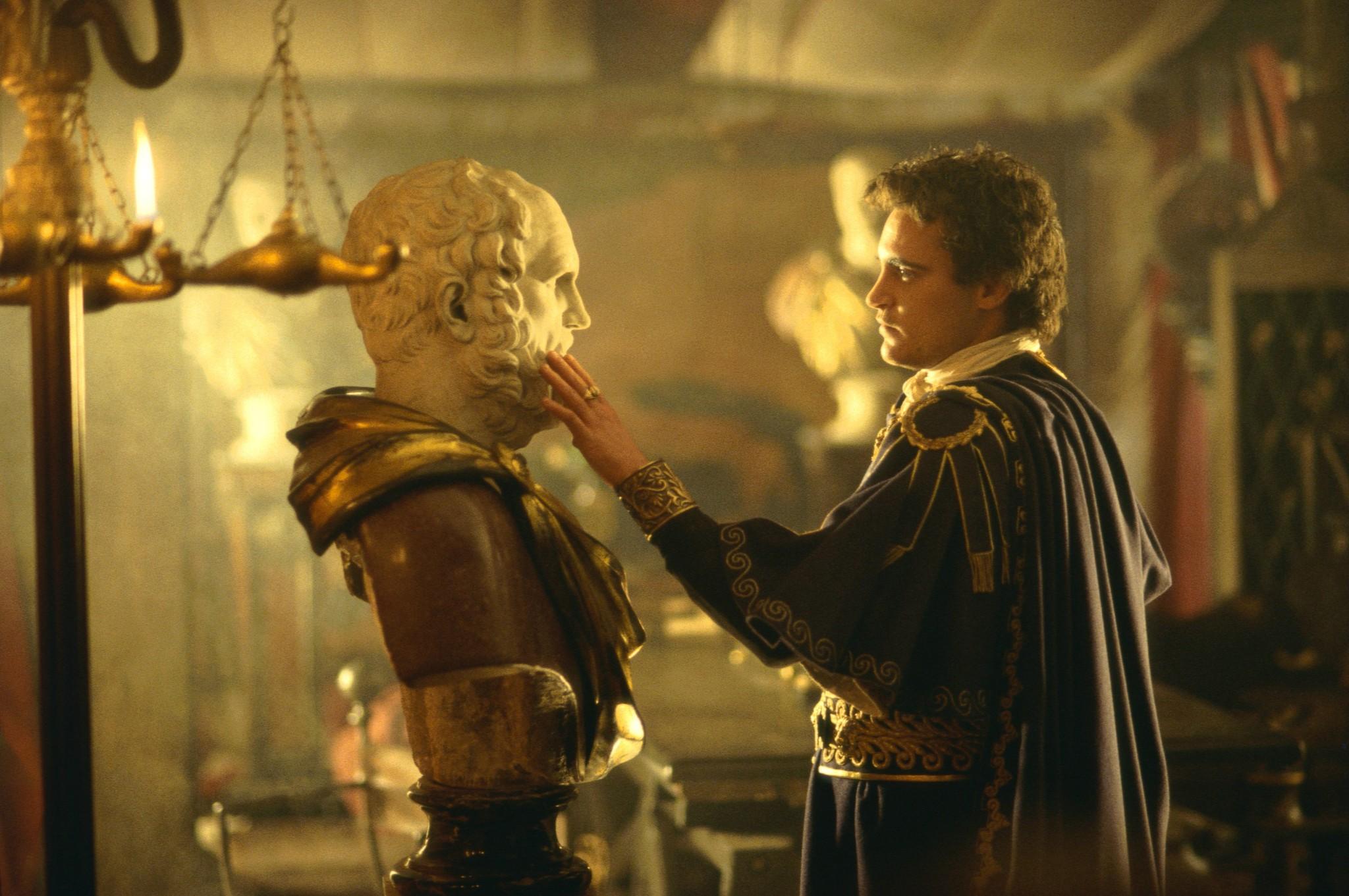
The film’s structure and message are also anachronistic. It contains all the well-known motifs: betrayal, conspiracies, brave fights for freedom and dignity; questions about humanity, honor, and sacrifice. But the film was meant to be like this; Ridley Scott created a nostalgic vision of a world long gone. Gladiator is primarily a film about dying. Both the hero and what he represents are dying.
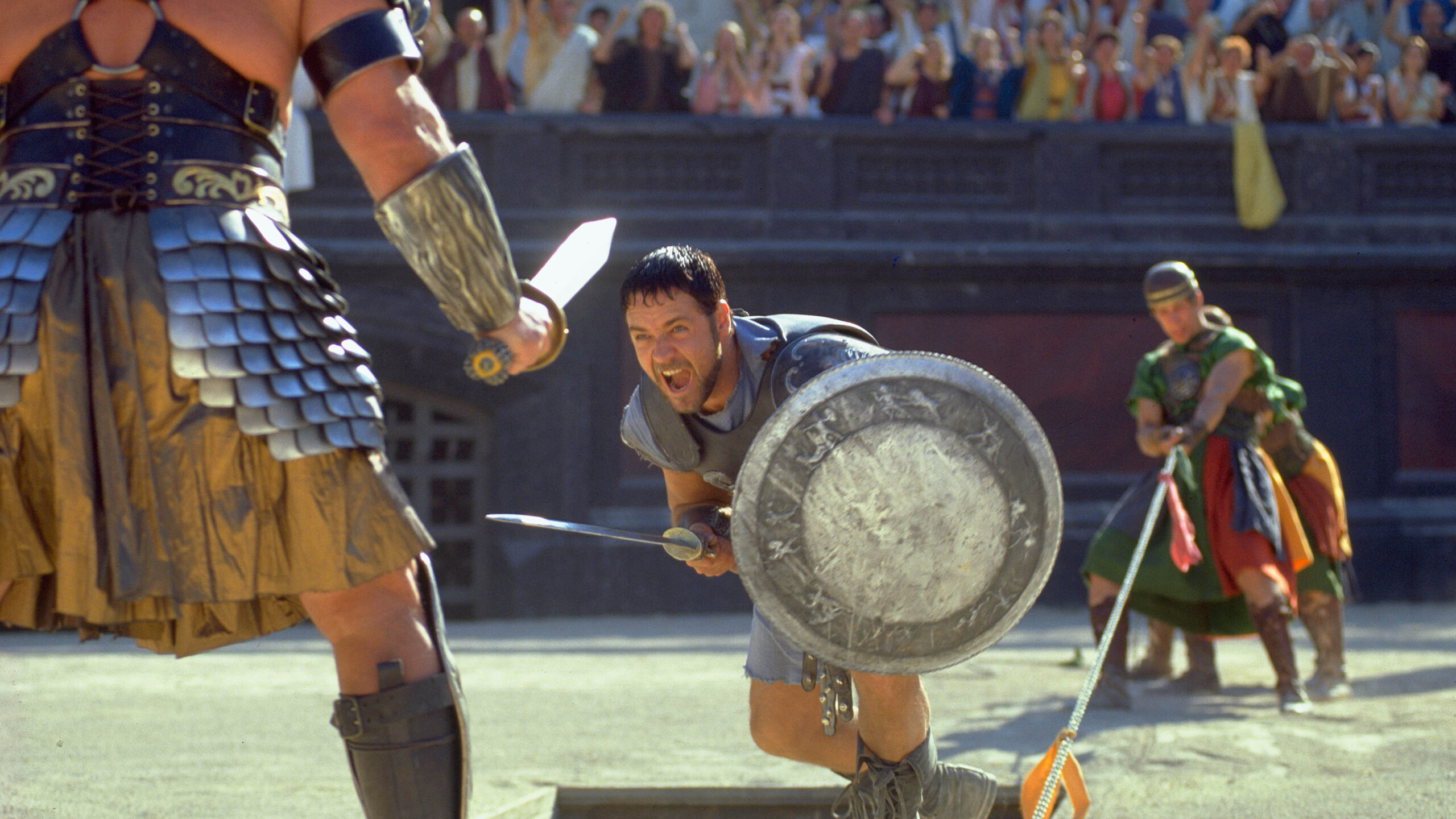
This is evident from the very first shot: a close-up of a hand brushing through ripe wheat. In the background, children’s laughter is heard. The image is surreal due to the slow motion. This unusual shot appears several times throughout the film. Right after it, we see the worried face of a man in armor – Maximus, preparing for the decisive battle with the Germans. The meaning of the first shot is quickly explained by the general himself when he addresses his soldiers with these words: If you suddenly find yourself alone on a sunlit field surrounded by wheat, don’t be afraid, for you are in Elysium, and you’re already dead. From the very beginning of the film, it is implied that the main character is destined to die. The general tells his men to imagine the place they want to be, and they will surely get there. Maximus longs to be back in Spain with his family, farming. He is a religious man, as evidenced by his frequent prayers accompanied by figurines of a woman and child – his family. He believes in what he prays for and what he says.
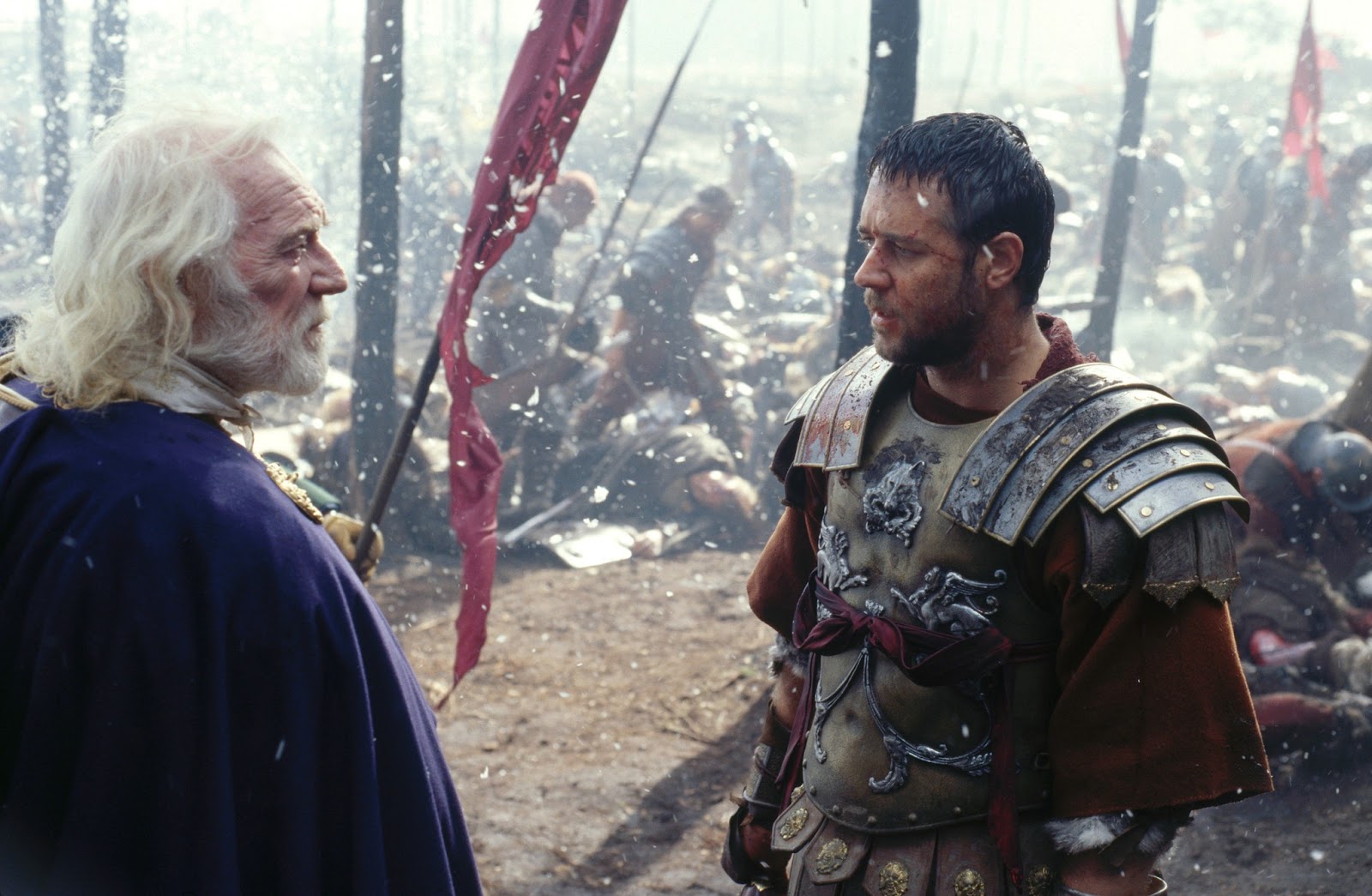
The hand shot reappears when he is sentenced to death. He asks his friend Quintus to take care of his family, to which Quintus replies, “You will meet them after death.” After these words, we see the road to Maximus’s home, then the woman and boy (the hero’s family), and again the hand shot. It is shown from a different perspective than before, suggesting that Maximus is closer to his goal. Each of these shots is maintained in a cool, blue palette. At this moment, the tragic fates of the general and his family merge.
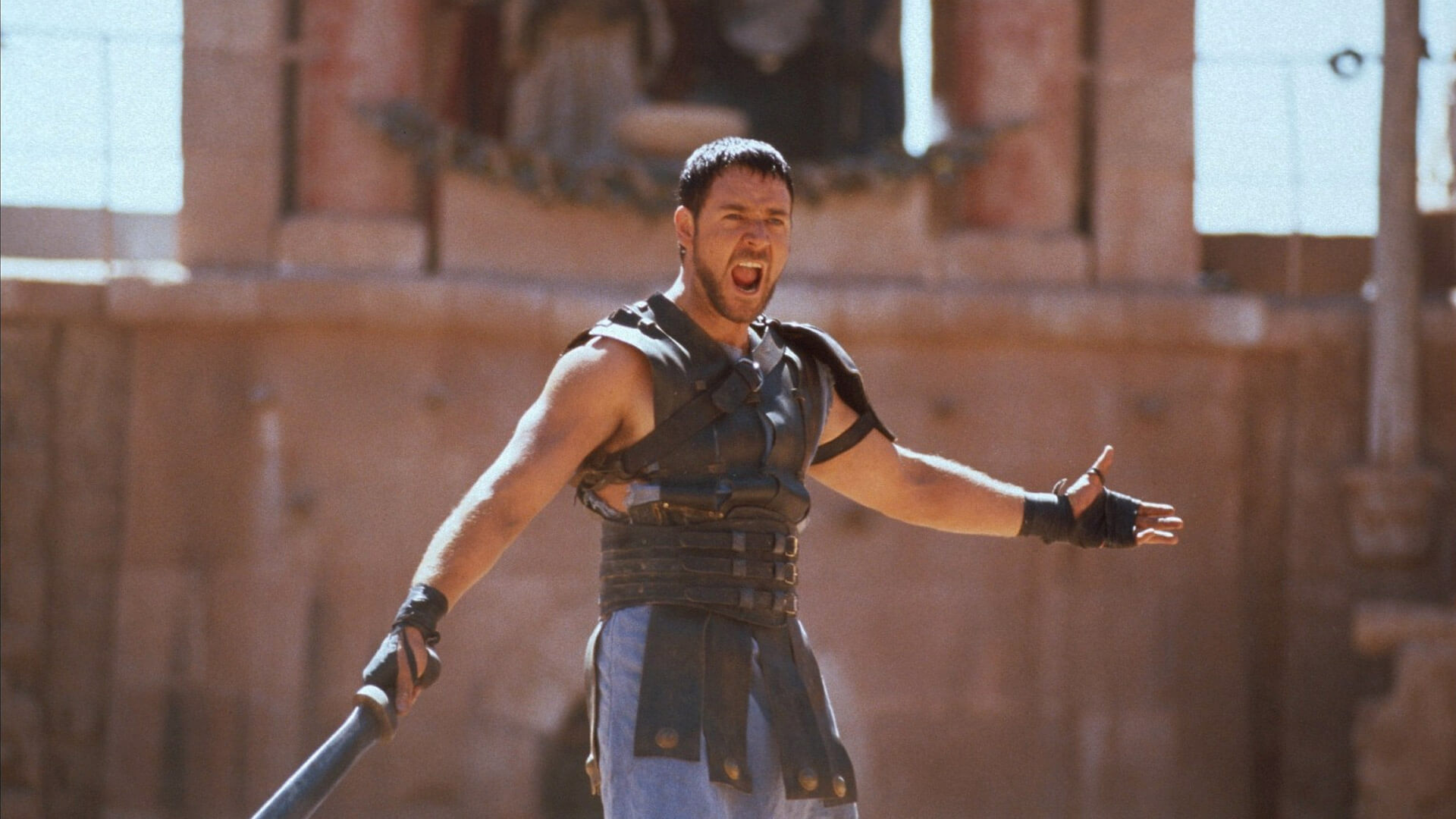
When Maximus escapes the Praetorians who were ordered to kill him, he immediately sets off on a journey home. During the fight, he was severely injured and finds himself in a state between life and death. This manifests as him hearing the very real cries for help from his murdered wife. Despite his exhaustion, he continues his journey at a gallop, but unfortunately, he arrives too late—his family has been burned alive and crucified. The hero faints, and people gather around his body. The next scene is composed of quickly succeeding shots. The first is a sped-up view of the setting sun, followed by a surreal image of Maximus’ head hovering a few centimeters above the ground. The next is a view of a wall with a gate, again in blue tones. Then a hand with grain (realistic colors and a child’s laughter in the background), followed by a hand barely touching the ground. Again, Maximus’ head (now realistic, showing he is lying on a cart), suddenly opening his eyes. The face of a Black man saying, Do not die. The next few shots are a mixture of dreamlike visions and real ones, including an image of his family in blue hues. Maximus is in the grip of death, drifting away from reality, but this is not yet the end. He is pulled back from eternity, as heroes do not depart this way. He must first prove his greatness. However, the image of his waiting family reminds him of the inevitable.
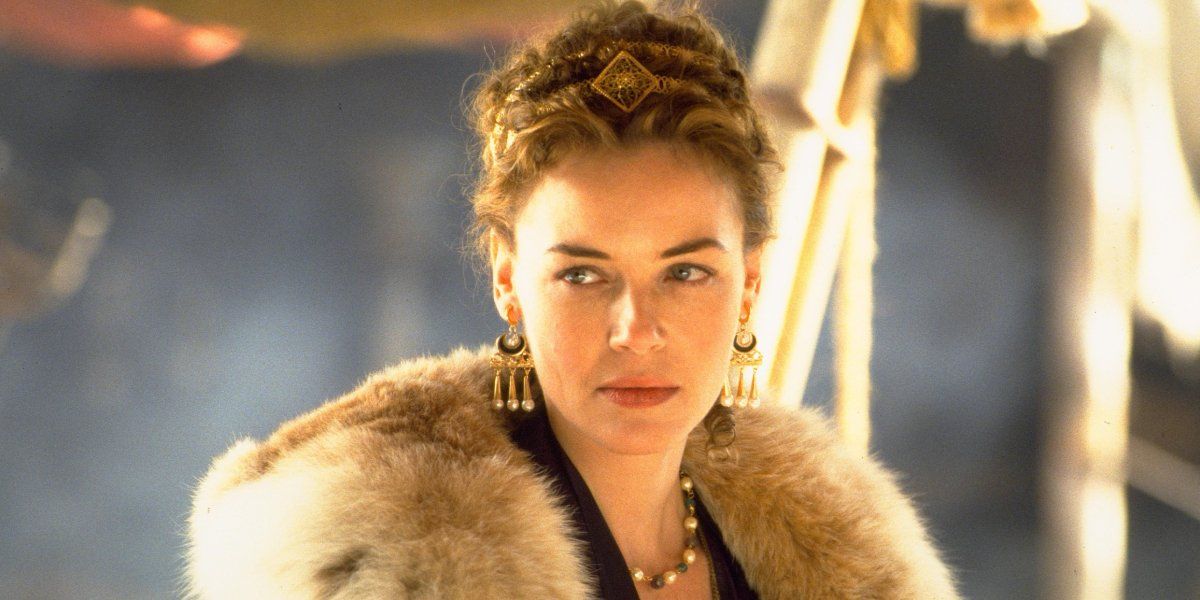
In the scene of the hero’s death, there is a similar mixture of shots. Maximus is again in a state between life and death. Severely wounded after winning the fight with Commodus, he reaches out his hand, and in the next shot, we see a blue-tinted view of a gate being opened by a bloodied hand. Behind the gate is the road to his Spanish home. Two voices call him back to the world of the living: Quintus and Lucilla. They call him only to deliver his final grand speech about the realization of the dream that is the Republic. He also asks for his men to be freed. His last words are directed to Lucilla: Lucius is safe, as he was threatened by Caesar. Does Maximus truly reach Elysium? Through his eyes, we enter the realm of death, which is a surreal version of the hero’s home. We see what the hero sees; he is the most important here. Not ancient Rome, not the Colosseum, not the plots and splendor of palaces, but the man himself. However, not a flesh-and-blood character, but a certain figure. A hero. This is a film about the death of someone who became a hero, but also about the death of heroism understood in this way (both in the real world and the film world). Maximus, after his death, ends up where he wanted to; it is his world.
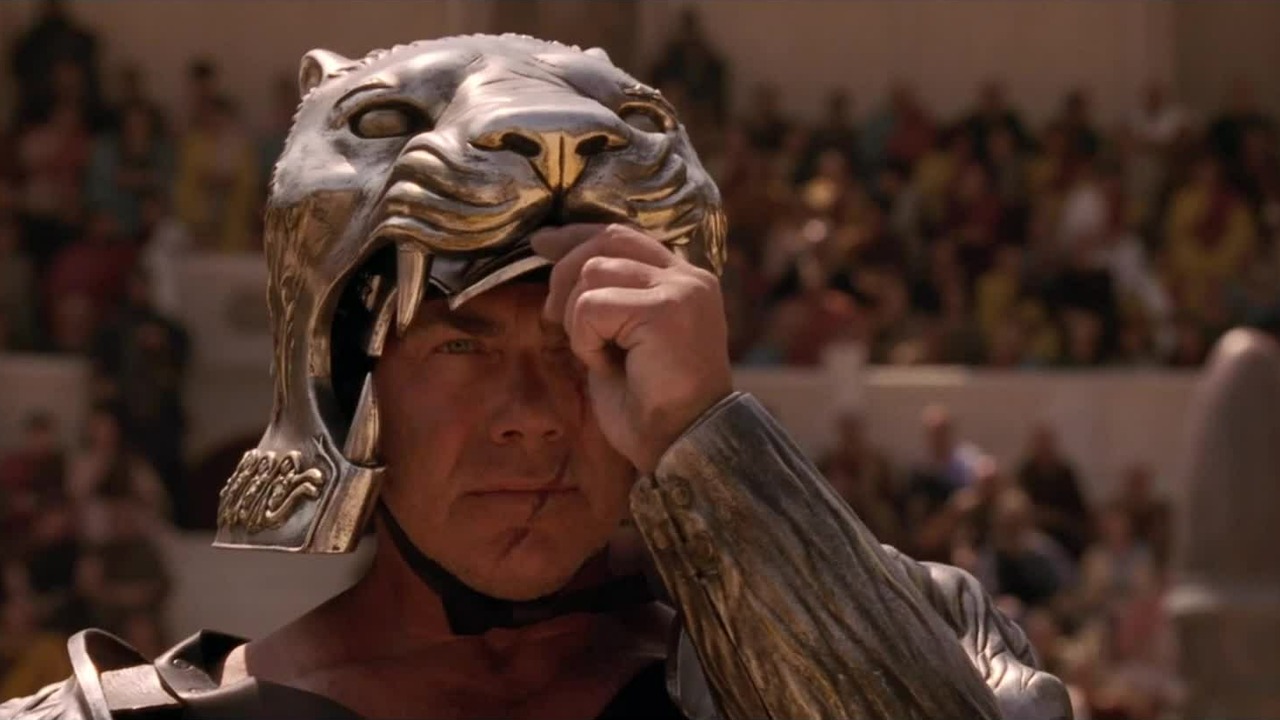
What sets Gladiator apart from other super-giants is the significant privileging of battle scenes. It is a film about a soldier who truly knows his craft and a tale of death as a spectacle. In classic super-giants, battle scenes are merely interludes between the “social” actions of the heroes. They mainly consisted of plots, romances, betrayals, feasts. This is when we got to know the main characters and their motivations better. The clash of individual attitudes and worldviews formed the main plot of these films. In Gladiator, the proportions are reversed. The battle has become the most exposed element of the film. Maximus will prove his virtues, praised by Marcus Aurelius, on the battlefield. The film begins with a beautifully constructed battle scene and ends with a duel with the main antagonist. However, to reach this point, our hero must first prove himself as a gladiator. In this case, the battle scenes are “interrupted” by other, less important actions of the characters. Of course, we find a plot, betrayal, and even romance here, but they are shown very briefly. Moreover, the plot will fail, and the only method to overcome tyranny will be direct combat.
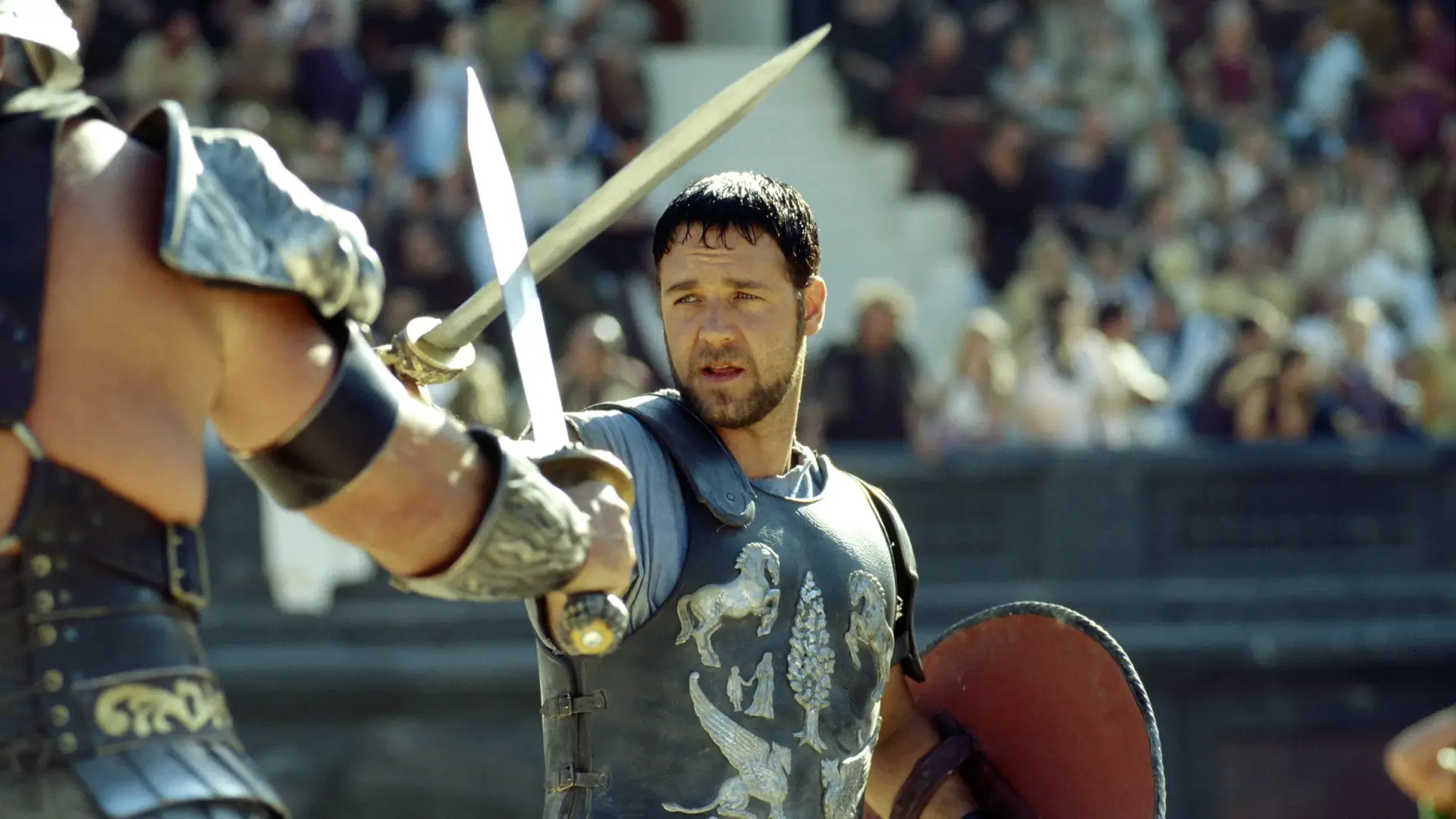
There are few scenes in this film showing the fates of other characters. We only briefly visit the senate and Commodus’ palace. The film’s life revolves around the arena. In the extended version of the film, we learn a bit more about the planned plot against Caesar. We see that Lucilla is one of its main instigators. In the original, theatrical version, these scenes are absent, which slightly disrupted the narrative flow, but at the same time made the film more coherent in its vision, focused on the main character.
Festival of death is a good summary of the entire work, where death is reduced to entertainment. The more spectacular the death, the greater the honor for the killer. Whoever controls the crowd also controls all of Rome. Commodus wants to win the people’s favor by organizing games (banned by his father) to gain total power by rejecting the senate. Maximus wants to win the people to avenge his family’s murderer. The will of the people is paramount. After the “barbarians” win the reenactment of the Battle of Carthage, the emperor wants to personally meet the gladiator who contributed to this victory. When Maximus reveals his identity, Commodus wants to kill him immediately, but the entire Colosseum shouts “spare him.” Caesar has no choice and gives a thumbs-up to please the crowd. This is the first of his wrong decisions. The citizens of Rome will support the general, who somewhat inadvertently gains their applause. Every decision regarding Maximus will bring only defeat to Caesar.
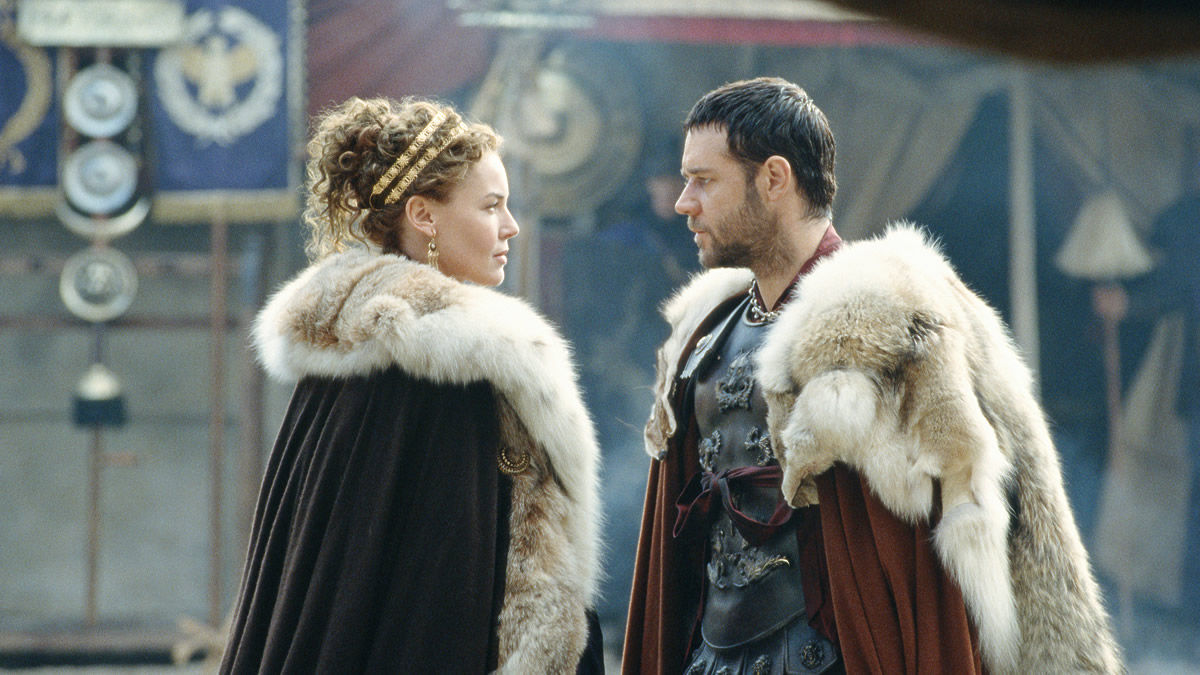
Why did I say that Maximus inadvertently gains recognition? Remember, he is a true knight without blemish; the filmmakers could not create him as a character who uses his combat skills just to be liked. Proximo, the owner of the gladiator school, instructs Maximus that to win over the crowd, he must turn killing into a spectacle, make it more spectacular. Being a “common butcher” is good in the provinces, but not in Rome, where Maximus wants to go, as it is the only chance to meet Commodus. Maximus kills because he must, doing it methodically and effectively, but the crowd demands more. As mentioned, he does not lower himself to the level of someone who will do anything to become popular. The hero’s mere agreement to Proximo’s proposal to kill more spectacularly is enough for Proximo to take his best gladiator to Rome. And the first test in the Colosseum will be the battle of Carthage, in which—just to survive—Maximus and his team must perform miracles of valor.
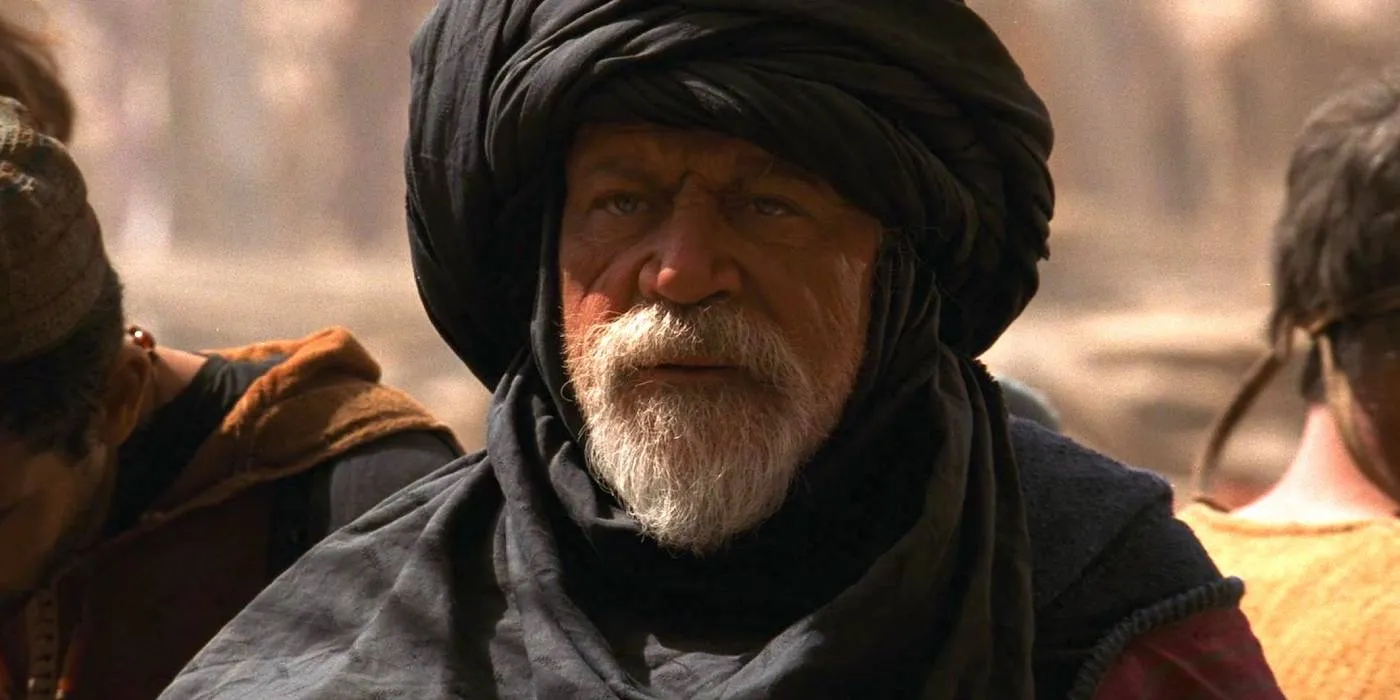
There is no need to “sell oneself” for the spectacle anymore; mere victory is a huge surprise. Next, our hero faces the best gladiator in history (and several tigers), set up to fight by Caesar himself with one goal: to kill Maximus. He wins the duel and spares his opponent’s life, despite Commodus’ thumbs-down signal to kill. The crowd will start chanting “Maximus the Merciful,” marking another defeat for the young Caesar. Maximus wins over the crowd, remaining morally pure. Seeing no other way to kill his former general, Commodus decides on a final step: he challenges him to a duel. In this way, he would not only get rid of an enemy but also gain fame as the one who defeated the greatest gladiator. To ensure victory, he wounds our hero beforehand so he cannot fight properly. Despite this trick, it is Commodus who dies in the arena, covered in disgrace. Thanks to Maximus, the sun will rise again over the Republic (the last shot of the film is the sun’s rays breaking through—as Commodus took power, clouds were gathering over Rome). However, it will rise only for the city’s inhabitants, who will live better from now on. The hero has died, and since the people have taken power, another will not appear. His dream is to return home (even posthumously) and engage in cattle farming. From a warrior, he wants to become a landowner. This is how Maximus describes his home: It stands in the hills above Trujillo. A simple place. Pink stones warmed by the sun. A garden at the kitchen that smells of herbs in the day, jasmine at night. An enormous poplar stands at the gate. I also have figs, apple, and pear trees. The land is as black as my wife’s hair. Grapes on the south side, olives on the north. Wild ponies nearby. Maximus says nothing about servants, but in one scene, we see people working in his field. It is a self-sufficient home, comfortably arranged without ostentation, a home the owner can be proud of.
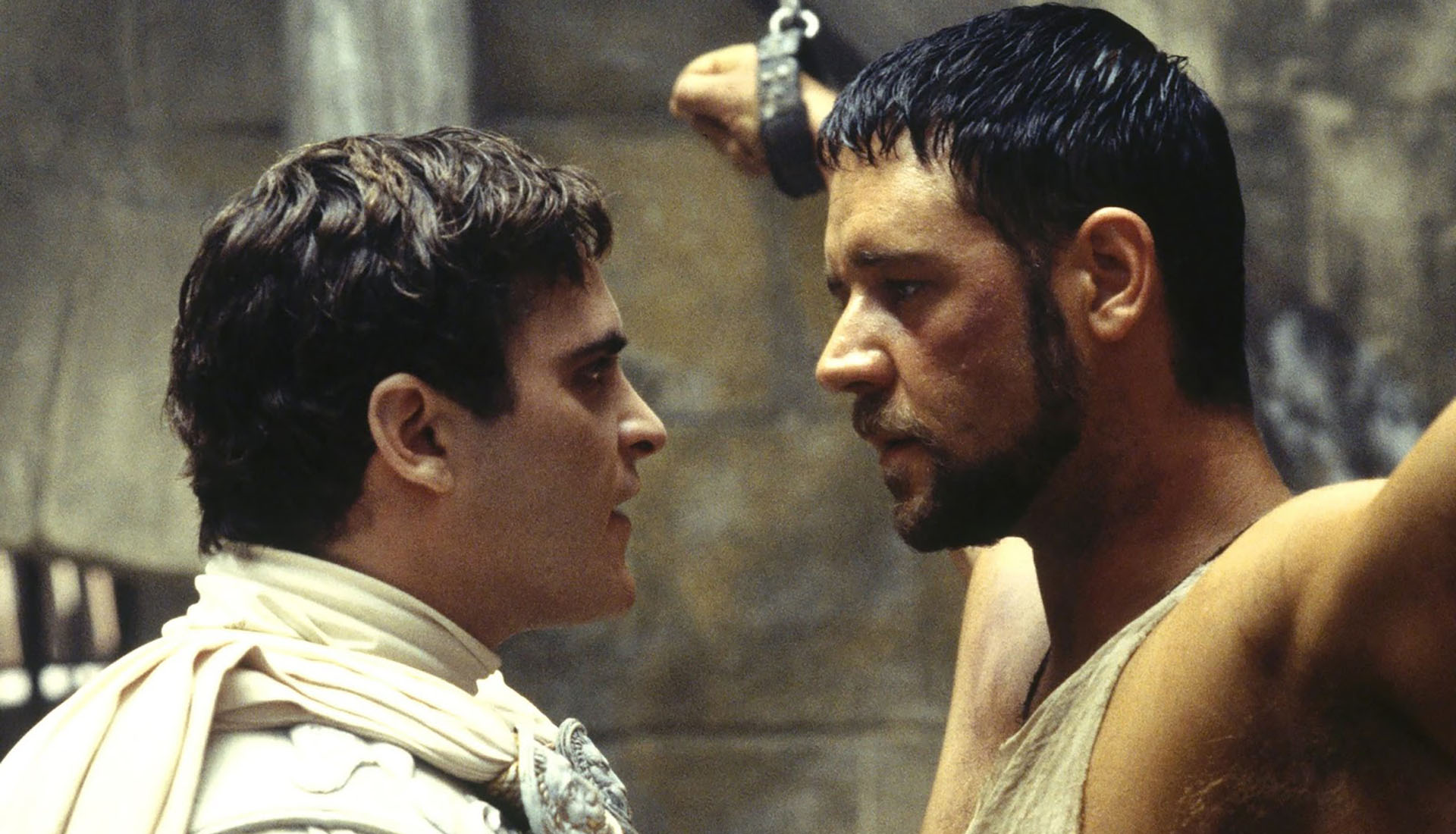
This description is close to the ideal of a property proposed by Leone Battista Alberti in the fifteenth century. The property of an independent townsman, still connected to the land, which is the best guarantee of capital. A home where clear rules and a patriarchal value system prevail. Perhaps only the love for a woman is more romantic here than in the Italian humanist’s view.
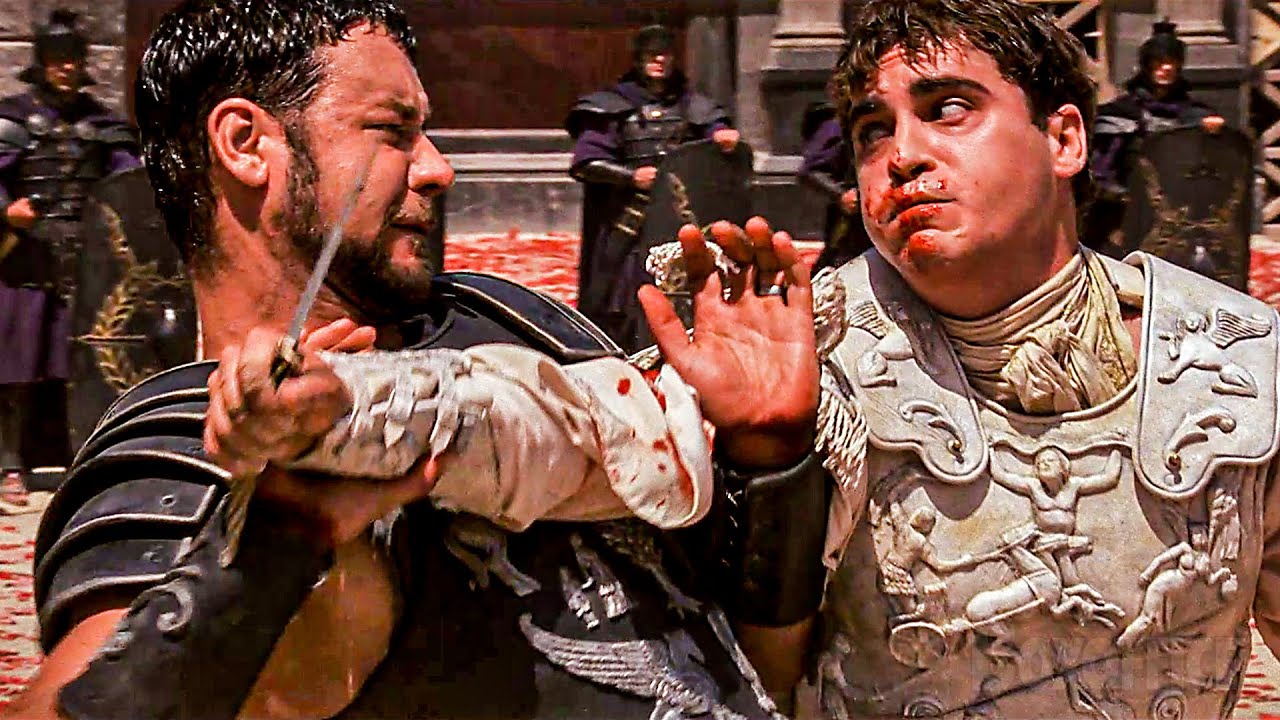
The filmmakers embrace this ideal. Not the life of a warrior and great deeds, but a peaceful existence somewhere remote. This is the lesson intended for the viewer, for whom this ballet of death was prepared. The viewer in front of the screen is placed in the same situation as the audience in the Colosseum. They want to watch a bloody battle, hear about great and magnificent deeds, yet they also wish to remain mere observers. The games are a celebration. But we have an advantage over the ancient guests of the Colosseum. After watching the entire film, we will know that heroes no longer exist; they appear only briefly to entertain us, and the most important thing is also the simplest. You don’t need to be a great leader to be happy; all you need is a good home. Heroes do not exist in the real world, just as they do not exist in the film world. They have been replaced by more complex individuals and more human problems. This film is meant to be like a ritual: to cleanse and set the world on the right path. It praises values that are products of bourgeois society. By projecting them onto antiquity, at the cost of obvious anachronism, it gains the favor of contemporary mass audiences. Such well-constructed characters are no longer seen in the cinema. Unless in parody or pastiche (or possibly in a comic book adaptation). Modern heroes are often ordinary people with their own weaknesses, often clumsy or even ridiculous. You won’t find classic tough guys even in Tarantino’s work. A flawless knight can only be seen in an old-fashioned epic.
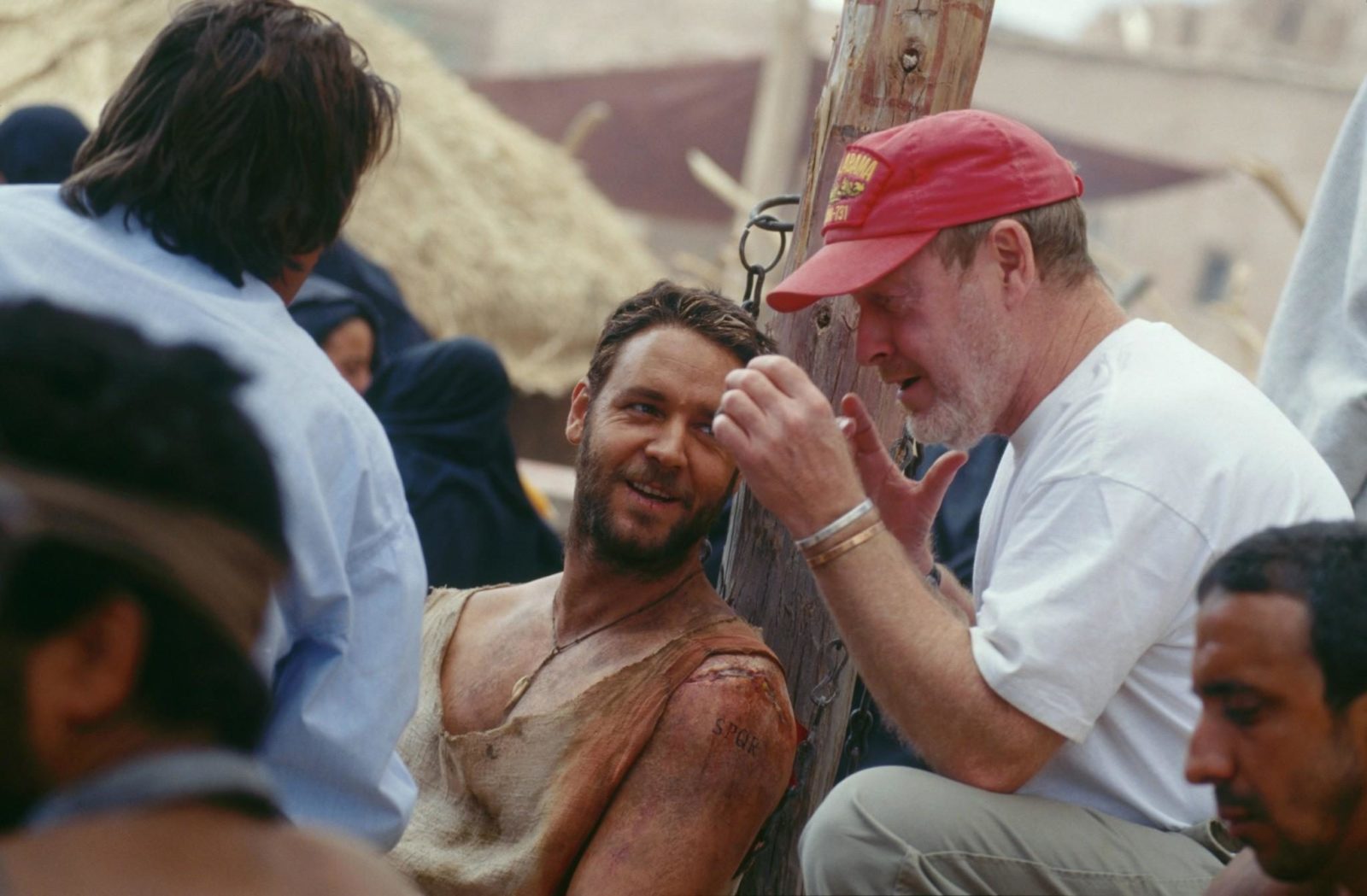
Maximus captivated the Roman crowds, and Ridley Scott captivated moviegoers, turning on-screen death, shown brutally as never before, into entertainment for millions. The formula kill as spectacularly as possible that governed the Colosseum also applies in the movie theater, and no one can deny it to Gladiator.
Written by Sebastian Pyka

